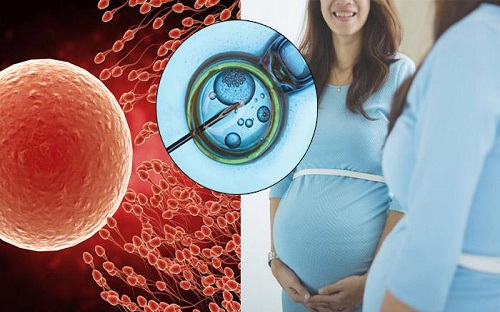In Vitro Fertilization (IVF)
IVF is a fertility procedure that is popular since the 1980s and is one of the most common methods to achieve fertilization. IVF procedure is practised in cases where the couples looking to impregnate themselves are unable to do so naturally due to reasons such as:
- The female partner has damaged, blocked or absent fallopian tubes.
- Unsolved Infertility issues.
Intra Cytoplasmatic Sperm Injection (ICSI)
Though IVF was a popular fertility method that helped many couples to bear children, IVF has proven not effective in cases of male infertility. Due to this reason, ICSI fertilization method was invented in 1992 which helped in cases of male infertility.
ICSI is used in cases where:
- The sperm count is lower than required.
- The sperm is unable to move or is atypical is anyways.
- If sperm is retrieved surgically from the epididymis or the testes.
- If the sperm is retrieved from urine or following electro-ejaculation.
- If high levels of antibodies are found in the semen.
- If a conventional IVF process failed in fertilization.

Method comparison
- IVF
- Thousands of sperms are inserted into each egg in expectations of one fertilising the egg.
- IVF has a history of falling short in the treatment of severe male infertility.
- ICSI
- In the ICSI method, a single sperm is picked up and injected directly into each egg by an embryologist.
- ICSI has a history of having a successful fertility scenario in some cases of severe male factor and fertilization failure post IVF.
In both IVF and ICSI cases, a couple of days after the sperms are inserted into the eggs, the embryologist checks in to see if the eggs have fertilised and developed into embryos. Once embryos are developed, one or, sometimes two embryos are placed in the uterus.
There are chances that the treatment is not successful in the very first attempt in both cases of IVF and ICSI. Keeping this in mind, any remaining embryos will be frozen for later use if the treatment is not successful in the first attempt.
Risk factors
- IVF
- There is a chance that the baby is born premature or underweight.
- The mother may face miscarriage of the pregnancy.
- Using the aspirating needle to gather the eggs could cause infection to the bowel, bladder or a blood vessel.
- ICSI
- Apart from the regular risk factors of IVF, there is a chance of the male baby conceived through ICSI having fertility problems; this could be since infertility from the father is passed on genetically.
- The percentage of risk of major birth defect is 1.5 to 3 percent in normal birth. Though on rare occasions, ICSI has a slightly higher risk factor.
Conclusion
IVF and ICSI are both fertilization procedures used to help couples with many kinds of infertility issues around the globe. However, many doctors do not consider ICSI as the first step of the fertility process considering the higher risk factor when compared with IVF.
The success rates of the IVF and ICSI is calculated in terms of the women being able to successfully get pregnant using either of the methods in the first attempt. Keeping this in mind, the IVF procedure has about a 28% success rate globally and ICSI is less than about 25%.
Looking at the numbers, though the ICSI is considered as a go-to procedure in cases of male infertility, the chances of the ICSI procedure turning out to be a success is a much lesser possibility. IVF hence is still the preferable fertility procedure preferred across the globe.


No Comments